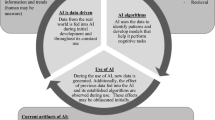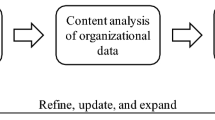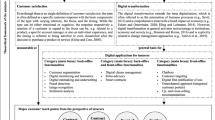Abstract
One aspect of the development of e-market services for the facilitation of business-to-business electronic commerce concerns the provision of automated support for contract performance assessment. Assessing the parties' performance of an agreement, once it comes into force, requires reasoning with the contract terms (obligations, rights, powers and other legal relations that obtain between parties) as parties go about conducting their business exchange, sometimes complying and sometimes deviating from their pre-agreed prescribed behaviour. Compliance with prescribed behaviour is typically evaluated individually by each partner to an agreement and where parties' views differ, disputes arise that require some form of resolution.
In this paper we present a simple architecture for an e-market, where an artificial (controller) agent undertakes such resolution. The controller's decision-making is informed by the agreement and each party's view of whether its own and the counter-party's behaviour comply with it. Thus, the controller forms an opinion on the basis of such evidence (and possible additional recommendations from agents representing the parties), in similar spirit to a (human) judge's process of reasoning in arriving at his ruling. We consider this as a belief formation problem and explore the potential of using subjective reasoning to represent an individual's (possibly partial) views and to reason about their joint conflict and consensus formation. We comment on the relation of such belief formation on the establishment of trust between partners to an agreement and between the latter and the controller of an e-market.
Similar content being viewed by others
References
Allen, T., and R. Widdison. (1996). “Can Computers Make Contracts?” Harvard Journal of Law and Technology 9(1).
Angelov, S., and P. Grefen. (2001). “B2B eContract Handling — A Survey of Projects, Papers and Standards.” Technical Report TR-CTIT-01-21, University of Twente.
CrossFlow. (2000). “Cross-Organizational Workflow Support in Virtual Enterprises.” ESPRIT Project 28635, Deliverable D6c.
Daskalopulu, A. (2000). “Modelling Legal Contracts as Processes,” in Proceedings of the 11th International Conference and Workshop on Database and Expert Systems Applications. IEEE C.S. Press, 1074-1079.
Daskalopulu, A., and T. S. E. Maibaum. (2001). “Towards Electronic Contract Performance,” in Proceedings of the 12th International Conference and Workshop on Database and Expert Systems Applications. Los Alamitos: IEEE C.S. Press, 771-777.
Daskalopulu, A., and M. Sergot. (2002) “Computational Aspects of the FLBC Framework,” Decision Support Systems, special issue on Formal Modelling in E-Commerce, vol. 33, issue 3, pp. 267-290.
Dimitrakos, Th. (2001a). “Towards a Formal Model of Trust in e-Commerce,” in Proceedings of the Novel E-Commerce Applications of Agents Workshop, AI 2001. Ottawa, Canada. NRC-44883, 13-22.
Dimitrakos, Th. (2001b). “System Models, e-Risk and e-Trust. Towards Bridging the Gap? Towards the E-Society: E-Business, E-Commerce, and E-Government,” in Proceedings of the 1st IFIP conference on e-Commerce, e-Business, e-Government. Zurich (to appear).
Dellarocas, C., M. Klein, and J. A. Rodriguez-Aguilar. (2000). “An Exception-Handling Architecture for Open Electronic Marketplaces of Contract Net Software Agents,” in Proceedings of the 2nd ACM Conference on Electronic Commerce. Minneapolis, 225-232.
Gisler, M., K. Stanoevska-Slabeva, and M. Greunz. (2000). “Legal Aspects of Electronic Contracts,” in Proceedings of the CaiSE Workshop on Infrastructures for Dynamic Business-to-Business Service Outsourcing (IDSO'00). Stockholm 5-6 June.
Jøsang, A.(2001) “A Logic for Uncertain Probabilities,” International Journal of Uncertainty, Fuzziness and Knowledge-Based Systems 9(3).
Jøsang, A. (1999). “An Algebra for Assessing Trust in Certification Chains,” in Kochmar (ed.), Proceedings of the Network and Distributed Systems Security Symposium (NDSS'99). The Internet Society.
Kent, S. J. H., T. S. E. Maibaum, and W. J. Quirk. (1992). “Specifying Deontic Behaviour in Modal Action Logic,” FOREST Deliverable Report WP1.R2.
Kimbrough, S. O. (1998). “Formal Language for Business Communication: Sketch of a Basic Theory,” International Journal of Electronic Commerce 3(2), 23-44.
Linington, P., Z. Milosevic, and K. Raymond. (1998). “Policies in Communities: Extending the ODP Enterprise Viewpoint,” in Proceedings of the 2nd IEEE Enterprise Distributed Object Computing Workshop. San-Diego, 11-22.
Madden, J. (2000). Distributed Models of Trust and Reputation in Group Interactions, Working Notes, http://www-netra.ics.uci.edu/~jmadden/mathcs/reputation/ (URL last checked 06/03/02).
Maibaum, T. (1993). “Temporal Reasoning over Deontic Specifications,” in Meyer and Wieringa (eds.), Deontic Logic in Computer Science. Chichester: John Wiley.
Merz, M., F. Griffel, T. Tu, S. Müller-Wilken, H. Weinreich, M. Boger, and W. Lamersdorf (1998). “Supporting Electronic Commerce Transactions with Contracting Services,” International Journal on Cooperative Information Systems 7(4).
Meyer, J.-J. Ch. (1988). “A Different Approach to Deontic Logic: Deontic Logic Viewed as a Variant of Dynamic Logic,” Notre Dame Journal of Formal Logic 29(1), 109-136.
Milosevic, Z. (1995). Enterprise Aspects of Open Distributed Systems. PhD Thesis. University of Queensland, Australia.
Morciniec, M., M. Salle, and B. Monahan (2001). “Towards Regulating Electronic Communities with Contracts.” 2nd Workshop on Norms and Institutions in Multi-Agent Systems, Montreal, Canada, May 28-June 1.
Noriega, P., and C. Sierra (eds.). (1998). “Agent Mediated Electronic Commerce,” in Proceedings of the 1st International Workshop on Agent Mediated Electronic Trading (AMET'98). Springer-Verlag, LNCS 1571.
Reeves, D. M., B. M. Grosof, M. P. Wellman, and H. Y. Chan. (1999). “Towards a Declarative Language for Negotiating Executable Contracts,” in Proceedings of AAAI-99 Workshop on Artificial Intelligence in Electronic Commerce (AIEC-99). AAAI Press/MIT Press.
Shafer, G. (1976). A Mathematical Theory of Evidence. Princeton University Press.
Author information
Authors and Affiliations
Rights and permissions
About this article
Cite this article
Daskalopulu, A., Dimitrakos, T. & Maibaum, T. Evidence-Based Electronic Contract Performance Monitoring. Group Decision and Negotiation 11, 469–485 (2002). https://doi.org/10.1023/A:1020691116541
Issue Date:
DOI: https://doi.org/10.1023/A:1020691116541




